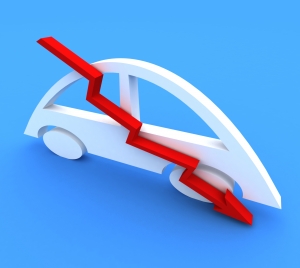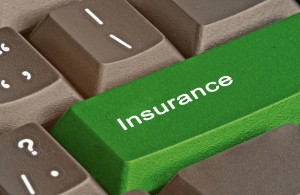July 4, 2012
 When it comes to getting a good deal on your car insurance quote, there are a few neat tricks that you can use to ensure that the price stays low. A lot of people will stay with the same company when it comes to car insurance for years, and while this is often a great option, there are also many other great deals out there. Here are a few of the best tips to ensure that your car insurance premium doesn’t break the bank.
When it comes to getting a good deal on your car insurance quote, there are a few neat tricks that you can use to ensure that the price stays low. A lot of people will stay with the same company when it comes to car insurance for years, and while this is often a great option, there are also many other great deals out there. Here are a few of the best tips to ensure that your car insurance premium doesn’t break the bank.
#1 – Try not to claim for small amounts
Let’s say that you have an accident; the first thing that you will probably do is call your insurance company and let them take care of everything. Now, this isn’t always the best thing to do and in fact, we recommend that in a lot of cases you don’t do this if at all possible. Making claims on small amounts when it comes to car insurance can often pump up your quote for the following year. In fact, we’d say that anything up to a cost of £500, you should ideally fix without claiming through your car insurance company.
The reason for this is that you will just be charged a higher premium when it comes to renewing your insurance the following year. You can also make sure to keep your excess high when you apply for the insurance to get a lower quote.
#2 – Be specific when it comes to your occupation
When you are filling in the forms on the comparison websites or even the insurance websites themselves, you will often be asked for your occupation. You might not have realised, but there are a handful of occupations that insurance companies don’t favour at all. If you have one of these occupations, your insurance premium might skyrocket. For example. many insurance companies don’t like sales reps or estate agents. This is usually because they will be traveling quite a lot.
By being more specific, you can lower your insurance premium. For example, let’s say that you do work for an estate agent but you only usually work at the office and do the admin work, you might put “administrative assistant” instead to lower your premium. Little things like this can add up to a big difference in your costs.
#3 – Don’t modify your car
A lot of people like to add extras to their cars these days, especially those that are young. However, adding a state-of-the-art surround sound system or colour neon lights to your car is only going to increase your insurance premium even more; and this is far from what you want, especially if you are young and have a high premium already.
By ensuring that you don’t modify your car too much with accessories, you can ensure that your premium stays as low as possible.
#4 – Add an extra driver to your policy
This might seem like a bit of a strange tip but in a lot of cases, this actually lowers your insurance costs. By adding another driver to your policy, you might see a reduction in your costs and it also means that a friend or family member can drive your car (should you allow it of course).
This is something to be careful with as it really does depend on a variety of factors. Age, relation and many other factors are taken into account by the insurance companies so make sure you explore this option before you go ahead with it.
#5 – Buy a used car
Again, this is a neat little trick to ensure that your premium is as low as possible. By purchasing a used car, you will be able to make sure that the value of the car your are insuring is much lower than if you purchased a brand new car. This means that should you opt for fully comprehensive insurance and the insurance company has to pay out should your car be stolen, they won’t have to pay out as much.
In effect, the cost of your car will be part of the algorithm used by insurance companies when it comes to calculating your premium. Used cars can be reliable and cheap too so this is actually a plus point for a lot of people.
Tags:
Assets,
Car,
Car insurance,
Claim,
Coverage,
financial planning,
insurance,
investments,
personal finance
July 3, 2012
 Any small business is exposed to a range of risks. An elegant small business shall take the essential acts to alleviate the risk and one important risk administrator is insurance. In several circumstances, there is no requirement your small business requires insurance except you have equipments, workers or it’s a loan condition. However, this is no background not to acquire small business insurance. No any small business is invulnerable to man-made or natural potential liabilities and disasters. Having considered the above mentioned facts the following are the needs for small business insurance.
Any small business is exposed to a range of risks. An elegant small business shall take the essential acts to alleviate the risk and one important risk administrator is insurance. In several circumstances, there is no requirement your small business requires insurance except you have equipments, workers or it’s a loan condition. However, this is no background not to acquire small business insurance. No any small business is invulnerable to man-made or natural potential liabilities and disasters. Having considered the above mentioned facts the following are the needs for small business insurance.
Business Property Insurance
It is a must to look after your small business’s assets. This type of insurance is an intelligent investment to restrict your liability and is able to cover a range of losses, comprising damage from electrical surges, fires, even misuse by a worker.
Business Disability Insurance
What would occur to your small business if you were physically unable for about one year or acquired eye harm for six months? To the not ready small business possessor, a sickness or misfortune ensuing in disability can be shocking to your business and life. Disability insurance shall substitute your revenue in the occurrence of a sickness or misfortune. Before you say it could never occur to you, think about the hard truths.
According to the source books on issues related with disability management, harsh disabilities have augmented four hundred percent over the past twenty five years from the age of seventeen to forty four. Before the age sixty five, one in seven individuals will turn out to be disabled for 5 years or more than that.
Business Liability Insurance
Evidences show that over seventy eight percent of all U.S. small businesses are organized as sole proprietorship or a partnership. For the largest part of small business proprietors, this type of possession puts your personal liabilities and business at risk. Having small business liability insurance safeguards both your personal life and business from monetary damage.
A widespread misunderstanding of a LLC (Limited Liability Company) or an incorporated company is guarded from personal accountability and liability insurance is not obligatory.
Errors and Omissions Insurance
We exist in a progressively more controversial community. For small businesses specifically, the possibilities of having prosecuted for professional liability are larger than the previous years. Nevertheless, the majority small businesses with the remarkable exclusion of real estate and health care are not conscious of how to create an insurance portfolio, which shall alleviate the risks of such court case.
Preventing your small business from the potential risks is the basis of achievement. Take the essential time to examine your business insurance requirements with an insurance delegate, your industry alliance, and peers. It would be the most vital resolution to the survival your small business.
In general, small business owners should take into consideration that having insurance in relation with the above mentioned cases is the most vital and should be given emphasis similar to the emphasis given for the day to day activities of the organization.
Tags:
Business,
Coverage,
financial planning,
insurance,
money,
savings
July 1, 2012
 Using the term “budgeting” can sometimes be off-putting because people think it’s a way to deprive them of something. Budgeting is actually a way to find out how much money you need for living expenses so that you can control how your pay is used and have something to set aside. Here are a few effective budgeting strategies you can use to meet your financial goals.
Using the term “budgeting” can sometimes be off-putting because people think it’s a way to deprive them of something. Budgeting is actually a way to find out how much money you need for living expenses so that you can control how your pay is used and have something to set aside. Here are a few effective budgeting strategies you can use to meet your financial goals.
Tip #1: Record everything
You may list down your essential expenses like utility bills and insurance payments, but do you also record the smaller ones, like the little purchases at the convenience store or even your vending machine jaunts? Remember, these seemingly trivial expenses do add up, and they can mess up your budget. The trick is to keep all your receipts and write everything down, so that when you work on your budget, it’s accurate, down to the last cent, allowing you to better manage how your hard-earned income is spent.
Tip #2: Select your platform
If your finances are really simple, then maybe a pencil and paper are all you need to plan your expenses. However, if your budget is a bit more involved, you’d need a platform that can make things easier for you. For instance, you can use spreadsheets to map out your budget from scratch or download templates for something more specific.
You can also look for online personal finance services like ClearCheckbook and Money Strands or any other similar websites. Such services have useful budgeting features like generating a spending plan and chequebook balancing.
Tip #3: Spend less than you earn
All your efforts at budgeting would be ineffective if your expenses are larger than your income. What you need to do is spend less than what you earn. Take note that if you use up more than your income, you will accumulate debt. If your income and expenses are pretty much equal, you need to spend less or earn even more. If this is the case, go for spending less it’s much easier than getting a second job. Spending less than your income allows you to accumulate wealth.
Tip #4: Pay yourself first
Think of putting money in savings like a bill to be paid to yourself. Indicate the savings as part of your budget and withdraw it before spending your funds on bills, groceries or any other expenses. See to it that you deposit your savings budget immediately in a separate account so that you won’t mistakenly spend it. If possible, set up a way for your savings to be deducted automatically from your salary. You won’t even realise you’re accumulating wealth.
Tip #5: Reduce entertainment expenses
There’s probably an allotment for “entertainment” in your budget, which could cover expenses like watching a movie, going on dates or even buying video games. Play close attention to these costs because it might cause you to overspend. To reduce entertainment expenses, consider:
- Getting bundled packages for phone, television and internet service.
- Borrowing audio books, movies and even video games from public libraries.
- Visiting free art exhibits or movie festivals for dates.
Tip #6: Prepare your own meals
It’s more expensive to eat out than to prepare your own meals. Consider that having a meal for two people at a mid-priced restaurant would cost around AU$77 to AU$80. Groceries for two people, on the other hand, would cost around AU$150 to AU$200 per week. You can eat at inexpensive restaurant (i.e. fast food) to save on costs, but that’s not good for your health. To save money on food, learn to cook healthy meals. That way, you cut down dining out costs and possible doctor visits.
Tip #7: Overestimate when allotting funds
If you’ve been budgeting for a while, then you probably know that many expenses have variable costs due to fluctuating prices. To prepare your budget for this unpredictability, look over the last year’s worth of receipts/bills and pick the most expensive you ever paid as your guide until an increase is announced. Here’s another tip: When allotting your funds, make sure you don’t use the exact figure. Instead, round off to the higher number, so that you won’t be short on funds.
Tags:
budgeting,
economy,
financial planning,
money,
personal finance,
savings
![]() When it comes to getting a good deal on your car insurance quote, there are a few neat tricks that you can use to ensure that the price stays low. A lot of people will stay with the same company when it comes to car insurance for years, and while this is often a great option, there are also many other great deals out there. Here are a few of the best tips to ensure that your car insurance premium doesn’t break the bank.
When it comes to getting a good deal on your car insurance quote, there are a few neat tricks that you can use to ensure that the price stays low. A lot of people will stay with the same company when it comes to car insurance for years, and while this is often a great option, there are also many other great deals out there. Here are a few of the best tips to ensure that your car insurance premium doesn’t break the bank.


Recent Comments